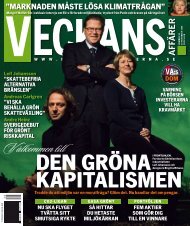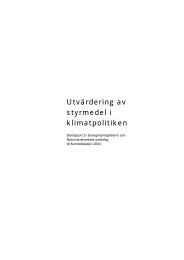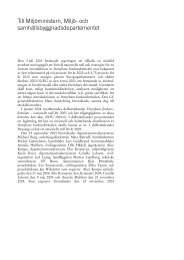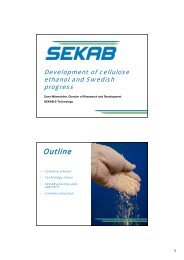Sugarcane ethanol: Contributions to climate change - BAFF
Sugarcane ethanol: Contributions to climate change - BAFF
Sugarcane ethanol: Contributions to climate change - BAFF
Create successful ePaper yourself
Turn your PDF publications into a flip-book with our unique Google optimized e-Paper software.
Foreword<br />
�e use of biofuels as a substitute for gasoline has been recently criticized mainly for:<br />
• sparking a competition between the use of land for fuel ‘versus’ land for food which is<br />
causing famine in the world and<br />
•<br />
leading <strong>to</strong> deforestation in the Amazonia.<br />
�e importance of these concerns was greatly exaggerated and is, generally speaking,<br />
unwarranted.<br />
�e recent rise in prices of agricultural products – a�er several decades of declining real<br />
prices – has given rise <strong>to</strong> the politically laden controversy of fuel ‘versus’ food. �is problem<br />
has been extensively analyzed in many reports, particularly the World Bank (World Bank,<br />
2008), which pointed out that grain prices have risen due <strong>to</strong> a number of individual fac<strong>to</strong>rs,<br />
whose combined e�ect has led <strong>to</strong> an upward price spiral namely: high energy and fertilizer<br />
prices, the continuing depreciation of the US dollar, drought in Australia, growing global<br />
demand for grains (particularly in China), <strong>change</strong>s in import-export policies of some<br />
countries and speculative activity on future commodities trading and regional problems<br />
driven by policies subsidizing production of biofuels in the US and Europe (from maize,<br />
sugar beets and wheat). �e expansion of biofuels production particularly from maize<br />
over areas covered by soybeans in the US contributed <strong>to</strong> price increases but was not the<br />
dominant fac<strong>to</strong>r. �e production of <strong>ethanol</strong> from sugarcane in Brazil has not in�uenced<br />
the prize of sugar.<br />
Despite that, the point has been made that other countries had <strong>to</strong> expand soybean production<br />
<strong>to</strong> compensate for reductions in the US production possibly in the Amazonia, increasing thus<br />
deforestation. Such speculative ‘domino e�ect’ is not borne out by the facts: the area used<br />
for soybeans in Brazil (mainly in the Amazonia) has not increased since 2004 (Goldemberg<br />
and Guardabassi, in press). �e reality is that deforestation in the Amazonia has been going<br />
on for a long time at a rate of approximately 1 million hectares per year and recent increases<br />
are not due <strong>to</strong> soybean expansion but <strong>to</strong> cattle.<br />
Emissions from land use <strong>change</strong>s resulting from massive deforestation would of course<br />
release large amounts of CO 2 but the expansion of the sugarcane plantations in Brazil is<br />
taking place over degraded pastures very far from the Amazonia. Emissions from such land<br />
use <strong>change</strong> have been shown <strong>to</strong> be small (Cerri et al., 2007).<br />
�e present area used of sugarcane for <strong>ethanol</strong> production in Brazil <strong>to</strong>day is approximately<br />
4 million hectares out of 20 million hectares used in the world by sugarcane in almost<br />
100 countries. Increasing the areas used for of sugarcane for <strong>ethanol</strong> production in these<br />
countries by 10 million hectares would result in enough <strong>ethanol</strong> <strong>to</strong> replace 10% of the<br />
gasoline in the world leading <strong>to</strong> a reduction of approximately 50 million <strong>to</strong>ns of carbon<br />
per year. �is would help signi�cantly many OECD countries <strong>to</strong> meet the policy mandates<br />
adopted for the use of biofuels.<br />
12 <strong>Sugarcane</strong> <strong>ethanol</strong>












